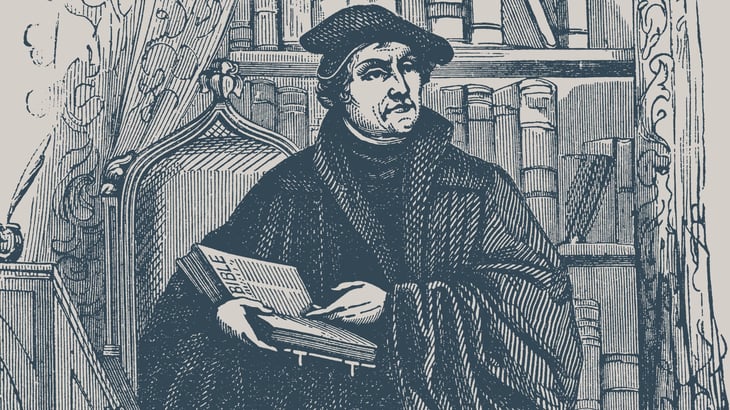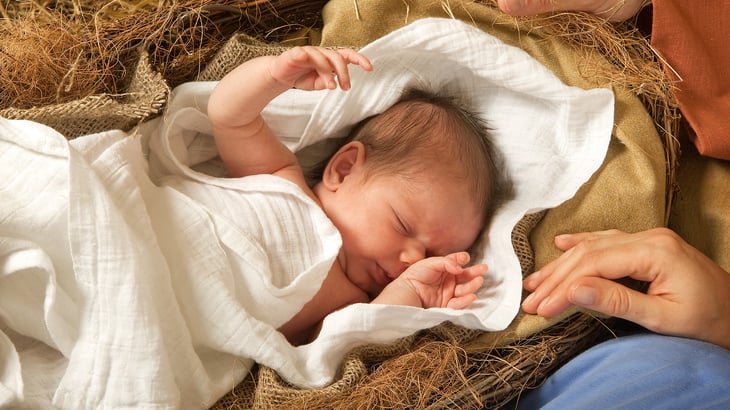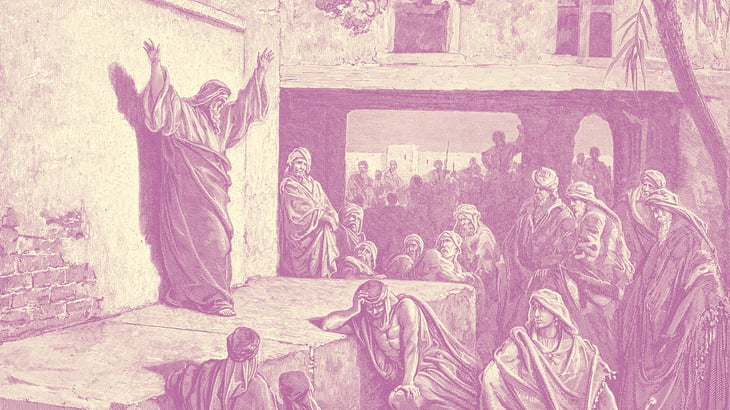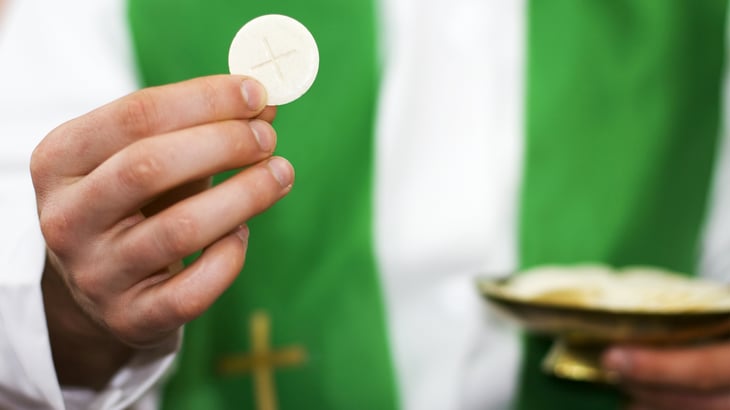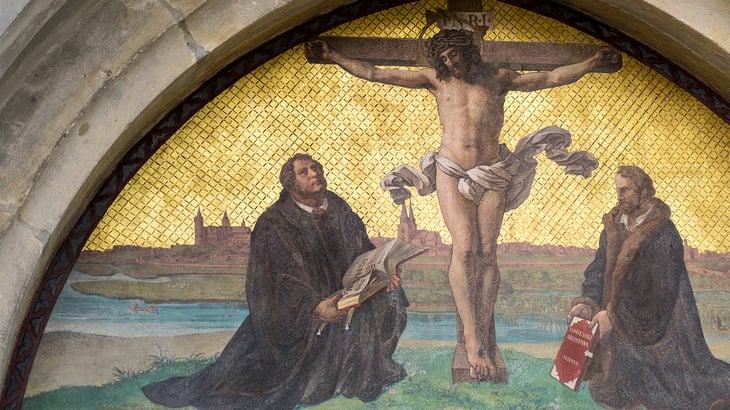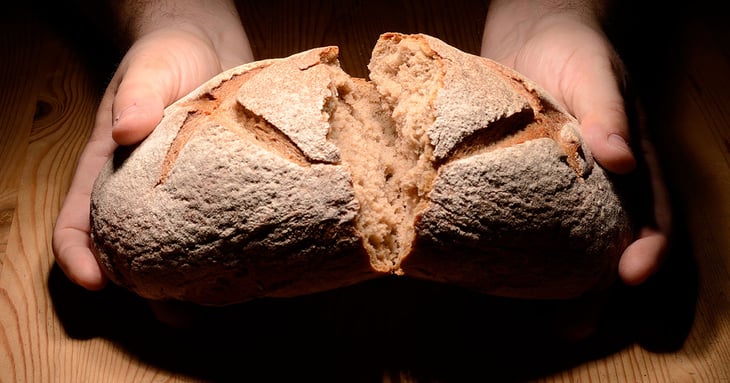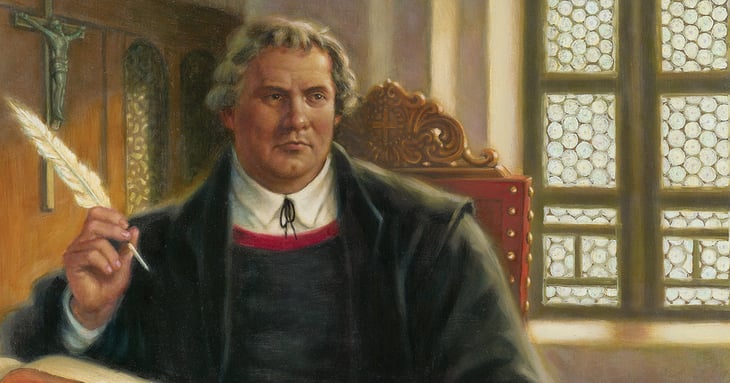The Lutheran Legacy of Resistance
The following is an excerpt from Wade Johnson’s essay “We Must Obey God Rather Than Men: The Lutheran Legacy of Resistance” in One Lord, Two Hands? Essays on the Theology of the Two Kingdoms, a new anthology edited by LCMS President Rev. Dr. Matthew Harrison and Rev. Dr. John T Pless.
Works-Righteousness: Luther’s Response to His Opponents
This blog post is adapted from Luther’s Works, Volume 61: Theological and Polemical Works.
These notations made by Martin Luther regarding the Bible passages used by his opponents to support works-righteousness were gathered by Veit Dietrich during Dietrich and Luther’s stay at the Coburg as the Diet of Augsburg progressed. Although he never completed the book, these fragments offer insight into Luther’s thinking during a critical point in the history of the Reformation.
The Power of Letters for Pastoral Care
The Epistle readings through much of the Easter season in the Three-Year Lectionary for Year B are from 1 John, a timeless letter of great encouragement for God’s children to love each other. Although 2 John and 3 John are not used by the Three-Year Lectionary, I find myself resonating with these brief letters at the moment.
To Us a Child Is Born: Luther’s Interpretations on Isaiah 9:6–7
Christmas is a time of celebration that the Savior of the Nations is born! His name is revered throughout the earth as we rejoice in God’s promises fulfilled. Isaiah 9:6–8 is an incredibly well-known verse about Christ’s birth. Read Luther’s commentary on these verses from Luther’s Works, Volume 16: Lectures on Isaiah Chapters 1–39 below.
Luther’s Introduction to Micah
This post is adapted from Luther's Works, vol. 18 (Lectures on the Minor Prophets I).
When the destruction of the Jewish people was imminent, when the new age and kingdom—namely, Christ—were coming, God sent many great prophets to cry out and lament about the coming destruction of the entire people so that at least some who heard the preaching of a threatening evil might believe, be converted, and, thus converted, be saved. In this way they might delay that terrible and wretched destruction. Thus at the same time prophesied Amos, whom I regard as the first, Hosea, who must be counted after Amos, and Micah. Isaiah also prophesied at the same time, although he would have been the last of these. Now all of them prophesied about the destruction of the old people and the bringing in of a new people, about the abolition of the external kingdom and the establishment of a new spiritual kingdom which would happen through Christ.
Luther's Catechism Series: The Lord's Supper
Every Sunday, congregants listen to their pastor speak the Words of Institution at the celebration of the Lord's Supper. What is the connection between communion and the Word of God? Read below to see Albrecht Peters' interpretations on Luther's Catechism concerning the Verba testamenti and the Lord’s Supper.
Luther’s Catechism Series: The Sacrament of Baptism
Baptism is a wonderful gift from our good and gracious God. It is the washing of regeneration and renewal in the Holy Spirit by which we are made the children of God, given the gift of faith, forgiven our sins, and claimed for all eternity. Read Luther’s insights on Baptism from Commentary on Luther’s Catechisms: Baptism and the Lord’s Supper below.
Martin Luther on the Distinction between Law and Gospel
For the first time in English, a truly scholarly translation of Luther’s most famous disputation, referred to as The Antinomian Disputations, is available as part of the newest volume in the ongoing Luther’s Works, Volume 73. Read an excerpt from the introduction below about the doctrines of Law and Gospel.
Luther’s Catechism Series: The Fourth Petition of the Lord’s Prayer
Every Sunday, as a community of believers, congregations say the Lord’s Prayer out loud. Luther goes into detail about what each petition of this prayer means, giving believers an in-depth understanding of exactly what it is they’re praying for.
The Fourth Petition, “Give us this day our daily bread,” thanks God for everything that He gives His creation, including food, drink, house, money, and so on. Read an excerpt from Albrecht Peters’s Commentary on Luther’s Catechisms: Lord’s Prayer to see how God gives humanity goodness through Christ daily.
Luther’s Teaching on Law and Sin
Martin Luther was a phenomenal theologian. He wrote many theses during his lifetime, and he also presided over and responded to many of the academic disputations of others in order to discuss their points and validity. A new edition of Luther’s Works, Volume 73 on disputations, dives more deeply into Luther’s arguments from December 1537 to July 1545. Read an excerpt below from the newest volume concerning arguments on Law and sin.


